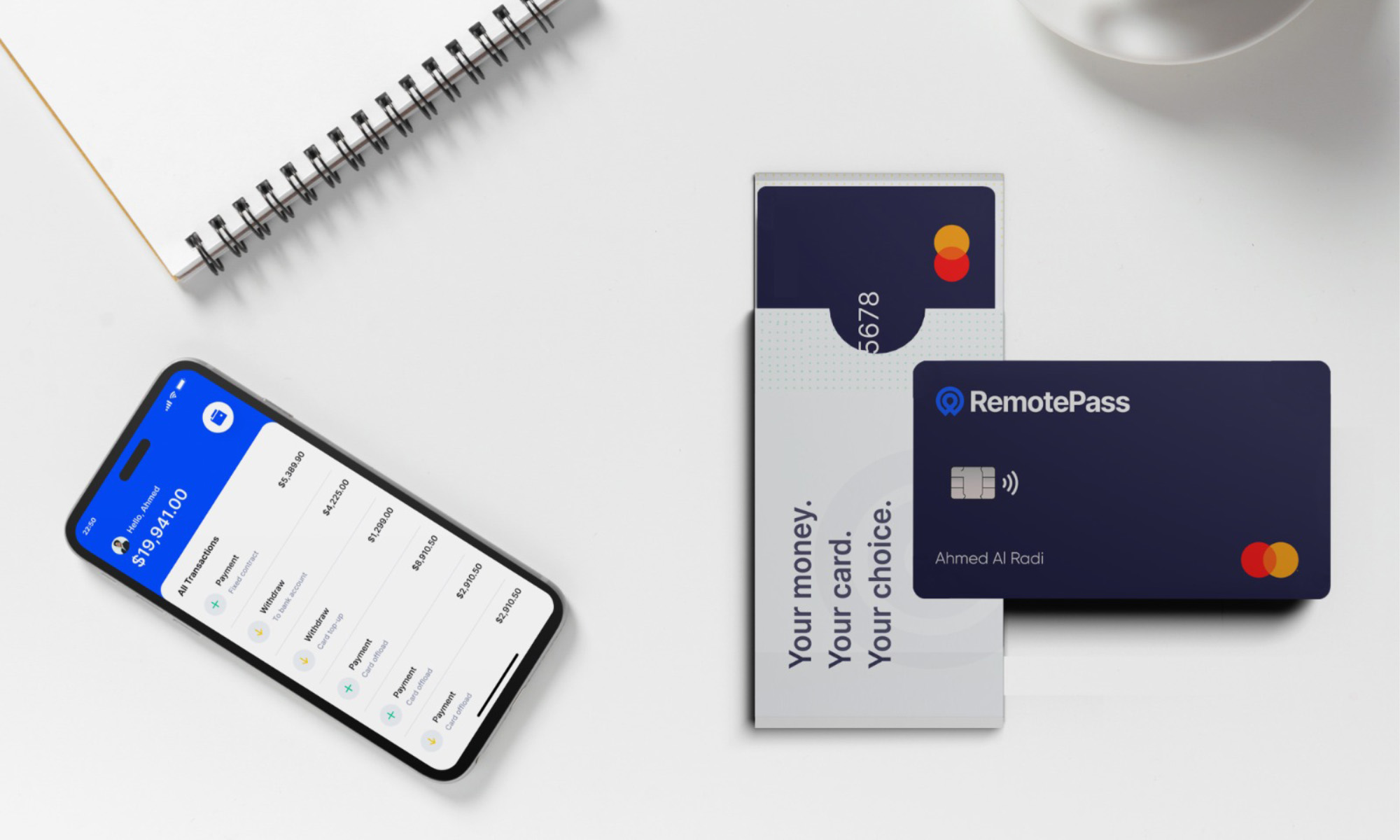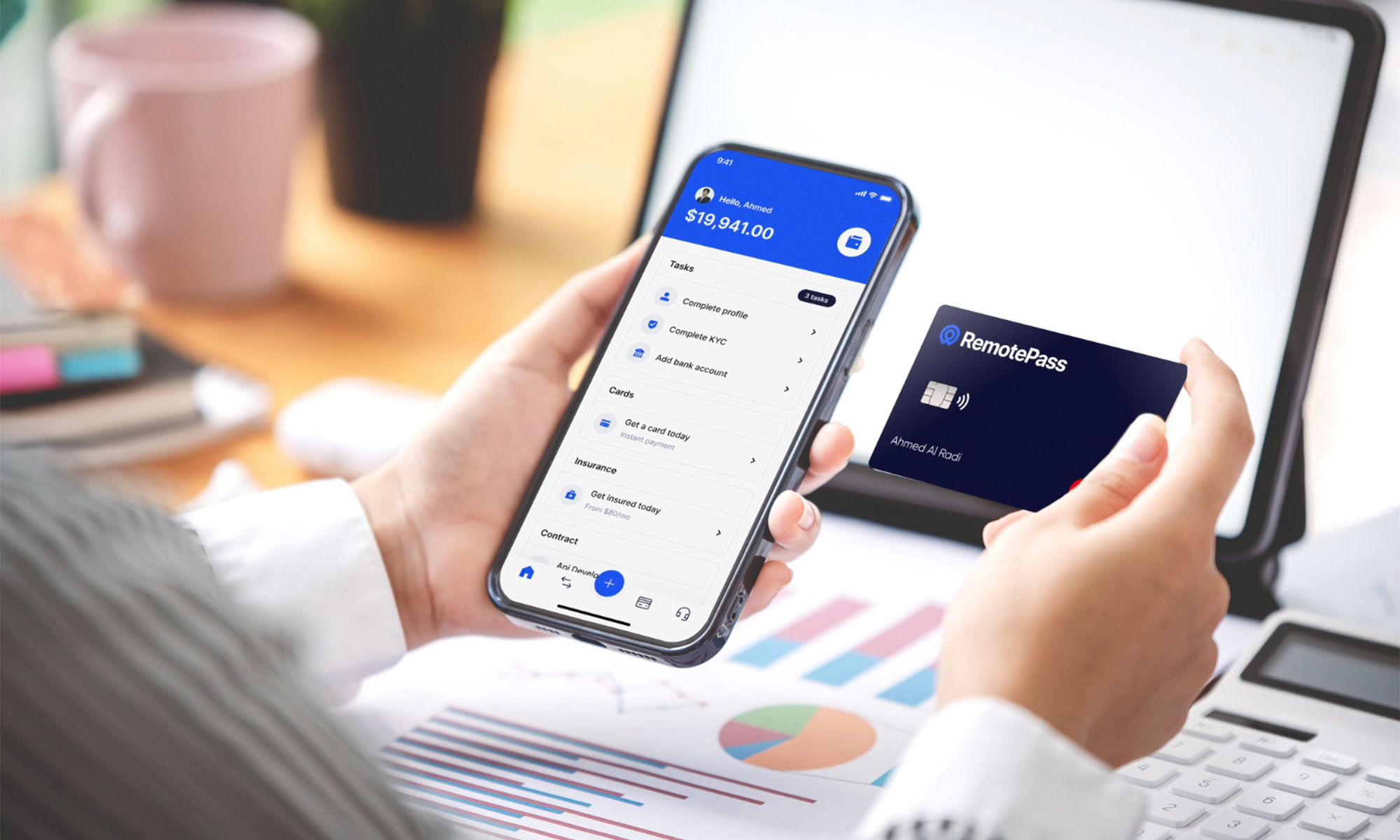News
RemotePass Launches Debit Card Service For Digital Nomads
The new service will enable remote workers with an active RemotePass contract to receive instant payments.

The leading remote work platform, RemotePass, has launched a physical debit card for remote workers in emerging markets. The new service allows digital nomads with an active RemotePass contract to receive instant payments with zero fees, avoiding high SWIFT charges and the lengthy wait times typically associated with international transfers.
The new card service will allow users to hold funds in USD and can be used both online and offline globally, wherever Mastercard is accepted. The card forms part of the RemotePass Super App. It enables users to manage their contracts, subscribe to premium health insurance plans, track expenses, and access physical and virtual payroll cards for instant payment.

The new product offering is in line with the UAE government’s vision of attracting global talent and establishing the country as a leading hub for remote work. Through its Employer of Record services, RemotePass handles the entire relocation, visa, and insurance process for foreign companies seeking to hire and/or relocate employees or contractors in the UAE.
The UAE has become a sought-after destination for cross-border remote hiring, with companies from the US, the UK, and Saudi Arabia benefiting from access to a vast pool of highly skilled job seekers seeking full-time remote work. In addition, the UAE introduced a digital nomad visa in March 2021, allowing expatriates to reside in the country while working for their employers in their home country.
To get started with the new service, RemotePass users simply need to upload documents via the app for verification and then request a card. Once an application has been approved — usually within 48 hours — users will have complete control of their card through the mobile app, enabling them to freeze, terminate, view, and manage transactions. The RemotePass card uses 3-D Secure, which provides additional authentication for online transactions. For offline use, cardholders are required to enter their PIN for extra security.
Also Read: A Guide To Digital Payment Methods In The Middle East
“Our physical card is just one of the many ways we’re helping remote workers get the financial freedom they need to thrive. We are working with different partners to bring more localized financial services and benefits such as a reward program, advance pay and pension plans,” says Kamal Reggad, co-founder & CEO of RemotePass.
A global survey conducted by Prudential found that 42% of remote workers would consider seeking new employment if their current employer removed work-from-home options. Meanwhile, FlexJobs reported a 105% rise in searches for “remote, part-time jobs” last year, proving the need for an efficient means of receiving cross-border funds.
News
Mamo Completes $3.4M Funding Round To Enhance Fintech Services
The startup will use the influx of cash to expand into Saudi Arabia and across the wider GCC while improving its product offering.

UAE-based fintech Mamo has announced the completion of a $3.4 million funding round that will help the startup extend its market presence and improve its product offering. Investors included 4DX Ventures, the Dubai Future District Fund and Cyfr Capital.
Mamo’s platform offers “payment collection, corporate cards and expense management” to help small and medium-sized businesses consolidate and streamline their operations. With the latest influx of capital, Mamo will further develop its comprehensive suite of services and begin testing its product lines in Saudi Arabia, further extending its footprint across the GCC.
Imad Gharazeddine, co-founder and CEO of Mamo, stated: “We’ve been in the market for a while now and are incredibly proud of what our team has achieved. The holistic and expansive nature of our product offering has helped us continue to grow sustainably. This additional funding will allow us to reach our medium-term goals even faster. The support from new and existing investors is a testament to our strong expertise and the ability to deliver on our customer promise”.
Daniel Marlo, General Partner of lead investor 4DX Ventures, added: “We have immense trust in Imad’s vision, leadership and Mamo’s innovative approach to provide a user-friendly and comprehensive financial solution for SMEs that makes financial management more accessible and efficient. We are proud to partner with them and support their mission”.
Also Read: A Guide To Digital Payment Methods In The Middle East
Amer Fatayer, Managing Director of Dubai Future District Fund’s investment team, also commented: “Mamo’s localized product lines serve as an infrastructure for SME payments and spend management in UAE, a segment that is underserved by the country’s current banking infrastructure. The team has taken a product-first approach to consolidating SMEs’ financial journeys and building a fintech solution deeply embedded in a business’s core operations”.
To date, Mamo has raised around $13 million in investment funding and now boasts a team of 30 people. The company’s intuitive financial services platform has allowed over 1,000 businesses to consolidate their financial operations and significantly reduce payment fees.
-

 News4 weeks ago
News4 weeks agoAmazon Prime Day 2024: Get Ready For 6 Days Of Amazing Deals
-

 News4 weeks ago
News4 weeks agoSamsung Unpacked 2024: What To Expect From The July 10 Event
-

 News3 weeks ago
News3 weeks agoCoursera Report Shows Surge In UAE Interest In AI Upskilling
-

 News4 weeks ago
News4 weeks agoMeet Dubai’s Groundbreaking Smart Robot Delivery Assistant















